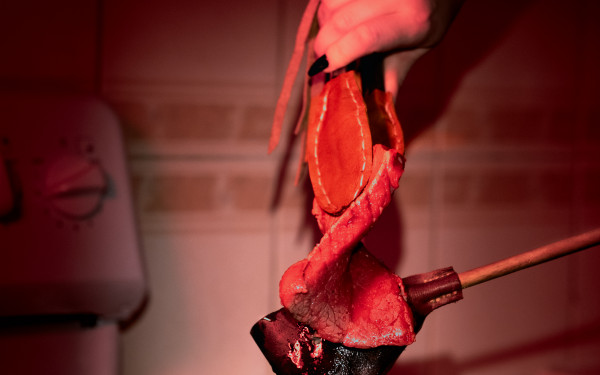Queer Concordia seeks to launch gender-affirming care pilot project
The project would provide students with interest-free loans to access gender-affirming care
Queer Concordia is looking to create a short-term, interest-free loan pilot project to help students relieve the financial burden associated with paying for gender-affirming care (GAC) procedures.
The group will present the plan to the Concordia Student Union’s (CSU) Council of Representatives on Sept. 18. Queer Concordia will ask the union to allocate $100,000 annually to the project, which students under the CSU’s insurance can access as an interest-free loan.
The CSU’s insurance provider, Studentcare, currently only covers $5,000 per procedure and a $10,000 lifetime maximum for GAC surgeries and treatments not otherwise covered by the student’s provincial government coverage.
GAC procedures can often exceed $5,000—even $10,000—per treatment. The pilot project proposal outlines the cost of one student’s surgeries that added up to a total of $33,000. Queer Concordia senior coordinator Jessica Winton said that the project’s loans would allow students to access the care they are paying for.
“When a surgery is $10,000 or more, [...] sitting around for up to a month waiting to be reimbursed by insurance for $10,000 can leave a very large hole in your pocket and very easily put you into debt,” Winton said.
If the CSU approves Queer Concordia’s proposal, the $100,000 would cover about 10 students at maximum per year.
Studentcare also requires that students receive a letter from a legally qualified physician or nurse practitioner confirming a gender dysphoria diagnosis to be eligible for GAC coverage.
This goes against the recommendations of the World Professional Association for Transgender Health (WPATH) which state that “the use of rigid assessment tools for ‘transition readiness’ may reduce access to care,” and that a gender incongruence diagnosis “may better capture the fullness of gender diversity experiences and related clinical gender need.”
Adam Philomena is the Centre for Gender Advocacy’s community engagement coordinator. He believes that the insurance providers should follow WPATH recommendations and that healthcare providers should trust that patients seeking GAC have the most knowledge of their own bodies and identities.
“The requirement of a gender dysphoria diagnosis is a huge barrier for a lot of people because [...] people express their transness in different ways and may not be necessarily looking for that to be medicalized in a specific way,” they said.
According to the CSU website, there is currently no pay-direct coverage available for the GAC plan, meaning that students seeking care must pay for the procedure out-of-pocket before making a claim for reimbursement.
Winton believes the pilot project if implemented could help relieve financial pressure for trans and gender-diverse students.
“This will actually help people use the insurance,” Winton said. “Many people are put off from trying to use it because of the current restrictions of the $5,000 limit and the fact that you usually have to pay out-of-pocket.”
The CSU’s Health and Dental Plan expanded to include gender affirming care in 2023. Undergraduate students that are paying provincial or out-of-province tuition rates and are enrolled in three or more credits are automatically signed-up for the plan that costs $225 for full-year coverage.
CSU finance coordinator Souad El Ferjani, said that she would be open to the project, but that Queer Concordia is asking for a substantial amount of money.
“Me and my team would be sitting down trying to see how we can solve this, how we can accommodate everybody without putting our budget in a bad position,” El Ferjani said.
Philomena claimed that, despite fee-levy employees having the same CSU Health and Dental plan as undergraduate students, they do not receive the Studentcare GAC coverage as they do not have student identification numbers. The CSU failed to verify the claim despite The Link’s attempt for clarification.
Quebec residents insured with the Régie de l’assurance maladie du Québec (RAMQ) can qualify for certain GAC surgeries and treatments, such as phalloplasties, vaginoplasties and mastectomies, if a doctor determines they are necessary. Other treatments, such as breast augmentations and facial feminization surgeries, are not covered by RAMQ as the government deems them purely esthetic.
Many universities across Canada, including McGill University, have the same GAC coverage as Concordia. Rachel Bainbridge-Sedivy, a member of the McGill Trans Patient Union, said that the coverage is currently inaccessible.
“It’s healthcare. It’s a human right. It's important for people to be able to access that,” Bainbridge-Sedivy said. “Gender affirming care is /not cosmetic, it is medically necessary.”
Winton will present the project to the CSU on Sept. 18. She encourages students to voice their support for the pilot project.
“We're really hoping that we can mobilize together and get this through,” Winton said, “because it really will help so many people.”
This article originally appeared in Volume 45, Issue 2, published September 17, 2024.







